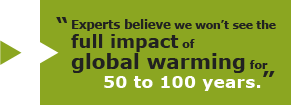The biggest and the most immediate threat to the economy of the United States and, for that matter, of the entire world, isn't global warming or the depletion of natural resources, because the direst effects of these phenomena aren't immediately imminent. (Experts believe we won't see the full impact of global warming for 50 to 100 years.) The most immediate peril we face is the increase in costs of all types, all of which are accelerating at the same time. Unless this devastating trend is halted and reversed immediately, vigorously, and effectively, our good days will soon be over.
How did we reach this critical point? We can place the blame on inept, imprudent, and shortsighted policies in all sectors–including the economy, energy, environment, and health care. These economic woes started to compound and spin out of control when speculation, manipulation, exploitation, fraud, swindling, plundering, and other unscrupulous behaviors took hold and spread like a virus, infecting Wall Street and business in general. Such behavior has led to escalating costs of all types, as reflected in inflation, deflation, recession, depression, bailouts, foreclosures, bankruptcies, unemployment, and the like.
Unfortunately, politicians are consumed with doing business as usual. Economists aren't much better; in fact, they're not even in a position to devise a better solution–almost as if their eyes are covered with blinders. They think costs are a normal consequence of existence. The best solution most economists can come up with is to suggest tax breaks in an attempt to stimulate the economy and create jobs.
But how much of a difference would a tax break of $500 or $1,000 a year make for poor and middle-class Americans? And what good would it do to give a billionaire a tax break of, say, $10 million? Tax breaks are no more than a way to silence the poor with handouts or to enable the rich to extend their shamelessly extravagant lifestyles.
As the blueprint Towards A Zero-Cost Economy describes in detail, there's a much better way to brighten our economic future–a way that avoids tax breaks and other failed methods. If tax breaks could work miracles, many Americans wouldn't be in the unfortunate position they're in today: unemployed or with stagnating incomes and declining purchasing power, increasingly falling victim to foreclosures, and feeling frustrated and hopeless. |
|
|

So we come to the main issue–economics. However, economics is intertwined with the environment. To make economic activities and needs compatible with environmental limitations, we must implement policies that cause little or no harm to the environment. Such policies have the added benefit of bringing long-lasting economic gains.
Unfortunately, when confronted with an economic problem, politicians, economists, businesspeople, and nearly everyone else seeks a piecemeal solution. The problem with a piecemeal solution is that it yields piecemeal results; a simple problem gets compounded, and then returns to haunt us.
A piecemeal solution is no more than a Band-Aid®. Instead, the correct and effective approach is to seek a comprehensive solution that addresses all aspects of our economic and environmental reality. Achieving a zero-cost economy would do just that.
As Americans, we have two choices: listen to the usual rhetoric and empty promises, or help achieve economic security as explained in Towards a Zero-Cost Economy (Click here to download). The concepts underpinning a zero-cost economy are based on sound and prudent economic and environmental policies.
Making the right choice is no trifling matter. Your own future–and your children's–are at stake.
|